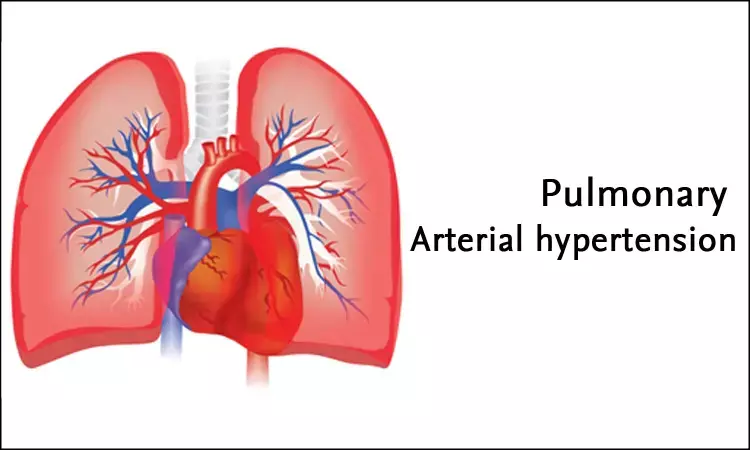- Home
- Medical news & Guidelines
- Anesthesiology
- Cardiology and CTVS
- Critical Care
- Dentistry
- Dermatology
- Diabetes and Endocrinology
- ENT
- Gastroenterology
- Medicine
- Nephrology
- Neurology
- Obstretics-Gynaecology
- Oncology
- Ophthalmology
- Orthopaedics
- Pediatrics-Neonatology
- Psychiatry
- Pulmonology
- Radiology
- Surgery
- Urology
- Laboratory Medicine
- Diet
- Nursing
- Paramedical
- Physiotherapy
- Health news
- Fact Check
- Bone Health Fact Check
- Brain Health Fact Check
- Cancer Related Fact Check
- Child Care Fact Check
- Dental and oral health fact check
- Diabetes and metabolic health fact check
- Diet and Nutrition Fact Check
- Eye and ENT Care Fact Check
- Fitness fact check
- Gut health fact check
- Heart health fact check
- Kidney health fact check
- Medical education fact check
- Men's health fact check
- Respiratory fact check
- Skin and hair care fact check
- Vaccine and Immunization fact check
- Women's health fact check
- AYUSH
- State News
- Andaman and Nicobar Islands
- Andhra Pradesh
- Arunachal Pradesh
- Assam
- Bihar
- Chandigarh
- Chattisgarh
- Dadra and Nagar Haveli
- Daman and Diu
- Delhi
- Goa
- Gujarat
- Haryana
- Himachal Pradesh
- Jammu & Kashmir
- Jharkhand
- Karnataka
- Kerala
- Ladakh
- Lakshadweep
- Madhya Pradesh
- Maharashtra
- Manipur
- Meghalaya
- Mizoram
- Nagaland
- Odisha
- Puducherry
- Punjab
- Rajasthan
- Sikkim
- Tamil Nadu
- Telangana
- Tripura
- Uttar Pradesh
- Uttrakhand
- West Bengal
- Medical Education
- Industry
Specific gut bacteria may predict pulmonary arterial hypertension with accuracy

Presence of specific microbiota may predict the presence of PAH with 83% accuracy according to a study published in Journal Hypertension.
DALLAS: A distinct collection of bacteria found in the gut has been identified that may contribute to and predict the development of pulmonary arterial hypertension (PAH).The research has been published in the American Heart Association's journal Hypertension.
Pulmonary arterial hypertension is a chronic and progressive disease in which the arteries that supply blood to the lungs are constricted, resulting in symptoms such as shortness of breath, heart palpitations, fatigue and others. In PAH, persistently high blood pressure in lung arteries makes the right side of the heart work too hard to pump blood, resulting in right-sided heart failure (inability of the heart to pump blood adequately). It is much less common than systemic blood pressure, which represents the force of blood moving through blood vessels throughout the entire body.
Everyone has a collection of bacteria in their gut - known as the Microbiota that aid in digestion. The researchers found that having a specific microbiota profile in their gut predicted the presence of PAH with 83% accuracy.
"We showed for the first time that specific bacteria in the gut are present in people with PAH. While current PAH treatments focus on the lungs, looking at the lung/gut axis could open the door to new therapies centred in the digestive system," said Mohan Raizada, Ph.D., lead study author and distinguished professor in the department of physiology and functional genomics at the University of Florida College of Medicine in Gainesville, Fla.
For the study, stool samples were collected from 18 PAH patients and 12 people without a history of cardiopulmonary disease. The microbiota DNA from the stool samples were isolated and sequenced. The testing revealed a group of bacteria unique in the PAH patients that were associated with PAH.
This is the first link between a specific collection of bacteria and pulmonary arterial hypertension. However, it is not the first time that gut bacteria have been connected to medical conditions. A variety of different gut microbiota profiles have been linked to a variety of cardiovascular diseases including high blood pressure.
"We were very surprised to see such an association within a small group of study subjects," said Raizada. "It usually requires hundreds of patients to achieve such significance."
Gut microbiota are constantly changing, depending on what we eat, our environment and especially our genetic makeup. However, Raizada said the bacteria associated with PAH are unique and do not seem to change: "We believe these particular bacteria are constant."
If the results are validated in a larger study, the researchers said that the unique bacterial profile could help to diagnose PAH early, possibly replacing the invasive heart catheterization that is used today to diagnose the disease. Also, new types of treatment focused on altering the gut microbiome of PAH patients could be developed, providing new hope for halting the progression of the disease.
Another important question to be researched is how gut bacteria impacts the lungs of PAH patients. "We do not know if and how gut bacteria and viruses make their way to the lungs," said Raizada. "Some studies have pointed to an increased incidence in intestinal leakage among people with pulmonary hypertension, which may allow some intestinal bacteria to get into the bloodstream and circulate to the lungs where they can cause inflammation and lead to vascular changes."
"There is still the question of whether the specific microbiota associated with PAH is the cause or the result of the disease, therefore, more research is needed," concluded Raizada.
For further reference please log on:
Seungbum Kim , Katya Rigatto , Marcelo B. Gazzana , Marli M. Knorst , Elaine M. Richards , Carl J. Pepine , Mohan K. Raizada. Altered Gut Microbiome Profile in Patients With Pulmonary Arterial Hypertension. Hypertension, 2020 DOI: 10.1161/HYPERTENSIONAHA.119.14294
Dr Kamal Kant Kohli-MBBS, DTCD- a chest specialist with more than 30 years of practice and a flair for writing clinical articles, Dr Kamal Kant Kohli joined Medical Dialogues as a Chief Editor of Medical News. Besides writing articles, as an editor, he proofreads and verifies all the medical content published on Medical Dialogues including those coming from journals, studies,medical conferences,guidelines etc. Email: drkohli@medicaldialogues.in. Contact no. 011-43720751


